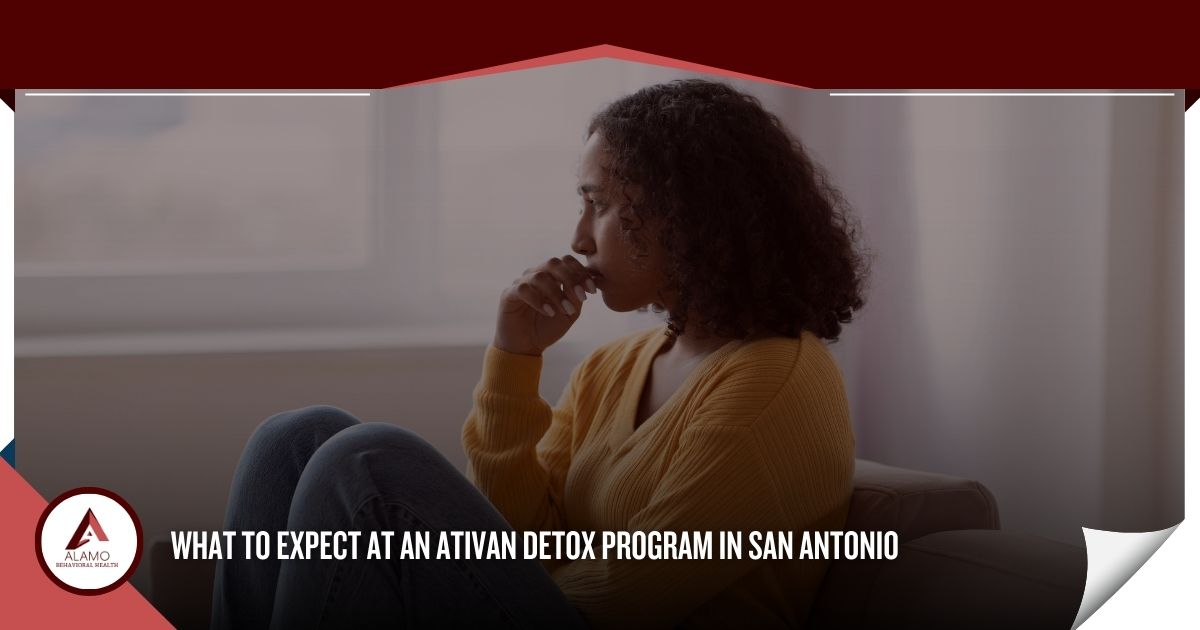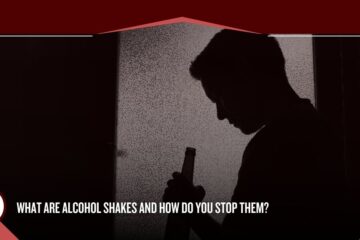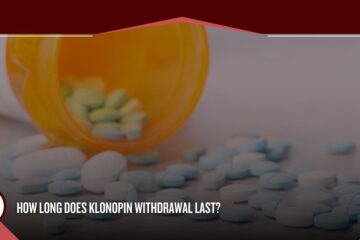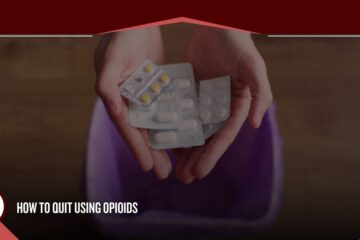Millions of people in the United States take prescription drugs to manage the symptoms of a mental health or medical condition. While many believe prescription medications are safe in all cases, some drugs have the potential for misuse and addiction.
Ativan is a prescription drug with a high risk for misuse and physical dependence. People taking Ativan may abuse it by taking larger doses or in other ways. Misuse of this drug can lead to an addiction that requires treatment and ongoing support.
This article will explore the challenges of detoxing from Ativan. You will learn:
- How Ativan addiction occurs
- What happens during a detox treatment program
- How to recognize benzodiazepine addiction
- Treatment available during the Ativan detox process
If you or someone you love struggles with Ativan addiction, you are not alone. Find a San Antonio Ativan detox program by reaching out to the team at Alamo Behavioral Health. Contact our intake team now to learn about our medically supervised rehab programs or continuing support programs.
Ativan Abuse and Addiction
Ativan is the brand name for a drug called lorazepam. It is a prescription benzodiazepine.[1] Doctors may prescribe Ativan to help patients manage the symptoms of conditions including:
- Anxiety disorder
- Seizures
- Bipolar disorder
- Agitation
- Alcohol withdrawal
- Insomnia and other sleep issues
- Nausea from chemotherapy treatment
- Muscle spasms
Ativan has a calming effect on the central nervous system (CNS). It can reduce disruptive symptoms associated with these and other conditions.[2]
People experience a range of side effects when taking Ativan, including euphoria and sedation. Some people may like the way they feel when using Ativan. This can lead to misuse. Ativan misuse includes:
- Taking a larger dose of Ativan than prescribed
- Taking Ativan more often than prescribed
- Using Ativan for a longer period than your doctor advised
- Taking Ativan without a prescription (using it recreationally)
Ativan abuse can lead to physical dependence and addiction. Recognizing the signs of Ativan abuse and addiction can help you seek treatment as quickly as possible.
Common signs of Ativan abuse include:
- Confusion
- Dizziness
- Fatigue
- Headaches
- Loss of consciousness (passing out)
- Nausea and vomiting
- Reduced appetite
- Tremors in the hands
- Sweating
- Weight loss
Ativan abuse can cause long-term, even life-threatening health complications, including addiction. If you or someone you love lives with substance abuse, you must seek treatment.
For most, substance use disorder treatment begins with a medically assisted benzodiazepine detox.
Ativan Withdrawal: An Overview
Ativan addiction is a total loss of control over your substance use. A person who is addicted to Ativan must take it for their body to function correctly.
Addiction develops when a person’s body has adjusted to the presence of a drug. When someone misuses Ativan for a prolonged period, their body begins to depend on it. If the person stops taking Ativan suddenly, they are likely to experience withdrawal symptoms.
Common Ativan withdrawal symptoms include:
- Abdominal cramps
- Anxiety and panic attacks
- Confusion
- Headaches
- Irritability
- Poor concentration
- Rapid heart rate
- Seizures
- Tremors
- Weight loss
The symptoms of Ativan withdrawal may vary in intensity. A person’s symptoms may come and go or change throughout their detox period. Symptoms can be intense and disruptive. Many people find it nearly impossible to manage detox without medical professional support.
Receiving treatment in an Ativan detox center in San Antonio TX can help you have a safe, complete detox. Completing detox treatment will prepare you to participate in a comprehensive treatment option. This will allow you to work toward lifelong recovery from Ativan addiction.
What to Expect During an Ativan Detox Program in San Antonio
Ativan withdrawal typically occurs in two stages: the acute phase and prolonged withdrawal. In a medical detox program, you will receive evidence-based, tailored treatment to help you manage your withdrawal symptoms.
Here is an overview of the treatment you will receive throughout the detox process.
Acute withdrawal
The acute phase of Ativan withdrawal typically lasts for 3-4 days. Your acute withdrawal symptoms may include:
- Anxiety
- Insomnia
- Elevated blood pressure and heart rate
As this period progresses, you may develop additional symptoms, including:
- Anxiety
- Heart palpitations
- Panic attacks
- Confusion
- Sweating
- Mood swings
- Nausea and vomiting
Your treatment team will consist of medical and mental health professionals. Throughout the acute stage of withdrawal, your team will assess your symptoms and provide evidence-based treatments.
Your detox treatment plan may include:
- Medications to reduce withdrawal symptoms
- Emotional support, including individual and group therapy sessions
- Mental health treatment
- A safe, supportive environment
- Round-the-clock supervision and access to treatment
This care and support will help you navigate the earliest days of detox and prevent relapse.
Benzodiazepine withdrawal is typically treated using a taper, gradually reducing your dose over a period of days or weeks. Slowly tapering off lorazepam can reduce the risks associated with withdrawal and alleviate uncomfortable symptoms.[3]
Prolonged withdrawal
After your acute withdrawal symptoms begin to fade, you may experience lingering symptoms for the next 10-12 days (or more, depending on the severity of your addiction).
Common prolonged withdrawal symptoms may include:
- Headaches
- Nausea
- Malaise
- Anxiety
Your risk of relapse will continue to be high throughout this stage of detox. It is crucial to have ongoing support. Your treatment team will continue to assess your symptoms and provide treatment as needed.
Find out if our Ativan Detox Center in San Antonio is Right for You
If you or someone you love struggles with Ativan addiction or other substance use disorder, you are not alone. Compassionate, holistic treatment is available at Alamo Behavioral Health. Contact us now to start your recovery journey.
References:
- Food and Drug Administration (FDA): Ativan (lorazepam) Tablets
- National Institutes of Health (NIH): Lorazepam
- NIH: Management of benzodiazepine misuse and dependence





